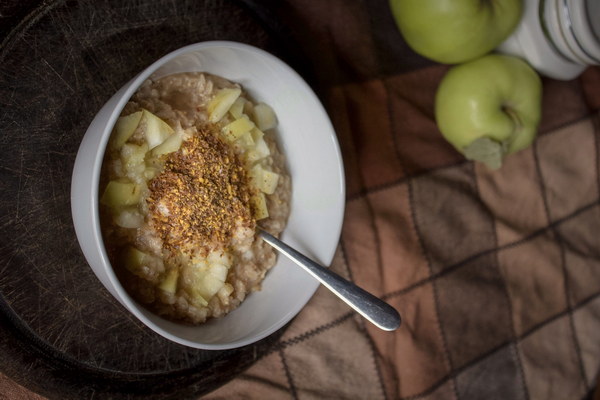Nourishing Foods for Post-Operative Recovery After Menstrual Irregularity Surgery
Introduction:
Undergoing surgery for menstrual irregularity can be a challenging experience. While medical treatment and surgery are crucial steps in addressing the underlying issues, proper nutrition plays a vital role in the recovery process. This article aims to provide you with a comprehensive guide on how to nourish your body with the right foods after menstrual irregularity surgery.
1. Importance of Nutrition in Post-Operative Recovery
After surgery, your body requires additional nutrients to heal, boost immunity, and prevent complications. Proper nutrition can help reduce recovery time, enhance energy levels, and support overall well-being.
2. General Guidelines for Post-Operative Diet
Here are some general guidelines to follow when planning your post-operative diet:

- Start with small, easy-to-digest meals.
- Focus on a balanced intake of carbohydrates, proteins, and fats.
- Stay hydrated by drinking plenty of water and fluids.
- Avoid spicy, greasy, and heavily seasoned foods that can irritate your digestive system.
- Gradually reintroduce solid foods as tolerated.
3. Nutritional Recommendations for Post-Operative Recovery
Here are some specific foods and nutrients that can aid your recovery after menstrual irregularity surgery:
a) Protein: Protein is essential for tissue repair and wound healing. Include lean meats, fish, poultry, eggs, dairy products, legumes, and tofu in your diet. Good sources of plant-based protein include quinoa, chia seeds, and hemp seeds.
b) Iron: Iron is crucial for the formation of red blood cells, which transport oxygen to the healing tissues. Consume iron-rich foods such as lean red meat, poultry, fish, beans, lentils, tofu, and fortified cereals. Pair iron-rich foods with vitamin C-rich foods, such as oranges, strawberries, bell peppers, and kiwi, to enhance iron absorption.
c) Calcium and Vitamin D: Calcium and vitamin D are essential for bone health and the proper functioning of the nervous system. Incorporate dairy products, fortified plant-based milk, leafy greens, and fortified cereals into your diet. Vitamin D can also be obtained from sunlight exposure or through supplementation.
d) Omega-3 Fatty Acids: Omega-3 fatty acids have anti-inflammatory properties and can help reduce swelling and pain. Consume fatty fish such as salmon, mackerel, and sardines, or consider omega-3 supplements after consulting with your healthcare provider.
e) Probiotics: Probiotics promote gut health and can aid in digestion. Include probiotic-rich foods such as yogurt, kefir, sauerkraut, and kimchi in your diet.
f) Vitamin A: Vitamin A is important for wound healing and immune function. Consume vitamin A-rich foods such as sweet potatoes, carrots, spinach, kale, and apricots.
g) Vitamin E: Vitamin E is an antioxidant that can help protect cells from damage. Nuts, seeds, avocados, and vegetable oils are good sources of vitamin E.
h) Hydration: Ensure you are well-hydrated by drinking plenty of water, herbal teas, and clear broths. Avoid caffeine and alcohol, as they can dehydrate your body.
4. Tips for Meal Planning
Here are some tips for planning meals during your post-operative recovery:
- Prepare meals in advance to save time and energy.
- Opt for easily digestible foods like soups, stews, and smoothies.
- Include a variety of fruits, vegetables, whole grains, and lean proteins in each meal.
- Use cooking methods such as steaming, baking, or grilling to preserve nutrients.
- Experiment with flavors using herbs and spices to make meals more appealing.
Conclusion:
Recovery from menstrual irregularity surgery requires a well-balanced diet rich in essential nutrients. By incorporating the recommended foods and following the guidelines provided, you can support your body's healing process and promote overall well-being. Remember to consult with your healthcare provider before making any significant changes to your diet.









